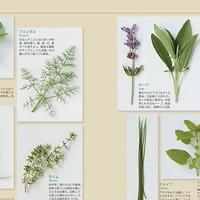ハーブ の 定義(2)
||ていぎ
Definition von Kräutern (2)
definition of herb (2)
Définition des herbes (2)
허브의 정의(2)
Definitie van kruiden (2)
草药的定义 (2)
ローズマリー や セージ 、 タイム 、 カモミール 、 ラベンダー …。
|||たいむ||らべんだー
Rosemary, sage, thyme, chamomile, lavender...
これら は 主に ヨーロッパ の 人々 が 伝えて きた ハーブ の こと と いえる でしょう 。
これ ら||おもに|よーろっぱ||ひとびと||つたえて|||||||
It can be said that these are herbs mainly introduced by Europeans.
この 条件 に 当てはめて みれば 、 世界 の どんな 民族 も 周囲 の 植物 を 利用 して きた ようです 。
|じょうけん||あてはめて||せかい|||みんぞく||しゅうい||しょくぶつ||りよう|||
Wenn wir diese Bedingung anwenden, scheint es, dass alle Völker der Welt die Pflanzen um sie herum genutzt haben.
日本 に は シソ 、 ショウガ 、 サンショウ 、 ワサビ など が ある ように 、 それぞれ の 地域 の 民族 に 固有の ハーブ が ある わけです 。
にっぽん|||しそ|しょうが||わさび|||||||ちいき||みんぞく||こゆうの||||
Just as there are shiso, ginger, sansho (Japanese pepper), and wasabi (Japanese horseradish) in Japan, there are herbs that are unique to each ethnic group in each region.
南米 アマゾン の 熱帯 雨 林 に は 、 現在 インディオ の 呪術 師 しか 知ら ない 薬用 植物 が 何 百 種類 も ある と 推測 されて いて 、 薬学 者 の 注目 を 集めて いる 最中 です 。
なんべい|あまぞん||ねったい|あめ|りん|||げんざい|||じゅじゅつ|し||しら||やくよう|しょくぶつ||なん|ひゃく|しゅるい||||すいそく|さ れて||やくがく|もの||ちゅうもく||あつめて||さい なか|
Es wird geschätzt, dass es in den Regenwäldern des Amazonas in Südamerika Hunderte von Arten von Heilpflanzen gibt, die nur indischen Hexendoktoren bekannt sind und die derzeit die Aufmerksamkeit von Pharmakologen auf sich ziehen.
The Amazon rainforests of South America are estimated to contain hundreds of medicinal plants known only to Indio sorcerers, and are the focus of much attention from pharmacologists.
また 、 中国 漢方 で 用いる 多数 の 薬草 や 、 今 日本 で 人気 の ウーロン 茶 、 杜仲 茶 など の 原料 も ハーブ と いって さしつかえ ありません 。
|ちゅうごく|かんぽう||もちいる|たすう||やくそう||いま|にっぽん||にんき|||ちゃ|もりなか|ちゃ|||げんりょう||||||あり ませ ん
ハーブ は 何 種類 くらい ある の か と いう 議論 の ナンセンスな こと が 、 お 分かり に なる と 思います 。
||なん|しゅるい|||||||ぎろん||なんせんすな||||わかり||||おもい ます
Sie können den Unsinn in der Diskussion darüber sehen, wie viele Arten von Kräutern es gibt.
また 、 家 の 周り に 勝手に 生えて くる 草 を 雑草 と 呼び 、 目 の 敵 に し がちです が 、 タンポポ や スギナ 、 オオバコ 、 シバムギ も みな それぞれ タンデライアン 、 ホーステイル 、 プランテイン 、 カウチグラス と いう 名 の 立派な ハーブ です 。
|いえ||まわり||かってに|はえて||くさ||ざっそう||よび|め||てき|||||たんぽぽ||すぎな||||||||||||な||りっぱな||
ともすれば 有名な ハーブ ばかり が もてはやさ れます が 、 ハーブ は 実は みな 「 自生 」 して いる もの な のです 。
|ゆうめいな|||||れ ます||||じつは||じせい|||||
Oft werden nur berühmte Kräuter angepriesen, aber eigentlich sind alle Kräuter „wild“.
米 や 野菜 の ように 人間 が 手 を かけて 品種 改良 したり 、 計画 的な 収穫 を 期待 して 栽培 する ので は なく 、 野生 の まま の みずみずしい 力 に あふれた 植物 たち です 。
べい||やさい|||にんげん||て|||ひんしゅ|かいりょう||けいかく|てきな|しゅうかく||きたい||さいばい|||||やせい|||||ちから|||しょくぶつ||
昔 は ハーブ だった キャベツ や セロリ 、 たまねぎ は 、 農業 的に 栽培 さ れる ように なって 「 野菜 」 に なりました 。
むかし||||きゃべつ||せろり|||のうぎょう|てきに|さいばい|||||やさい||なり ました
そう する と ハーブ と は 「 人間 の 暮らし に 役立つ 自生 植物 」 と いう こと に なります 。
||||||にんげん||くらし||やくだつ|じせい|しょくぶつ|||||なり ます
では 、 ハーブ と スパイス は どう 違う のでしょう か 。
|||すぱいす|||ちがう||
「 人間 の 暮らし に 役立つ 自生 植物 」 と いう 条件 に 当てはめる と 、 ナツメグ や ペッパー 、 クローブ 、 シナモン など の スパイス 類 も 、 インド や マダガスカル 、 東南 アジア など の 原産 地 で は もっとも 役立つ 自生 植物 です から 、 ハーブ と いう こと に なって しまいます 。
にんげん||くらし||やくだつ|じせい|しょくぶつ|||じょうけん||あてはめる|||||||||すぱいす|るい||いんど||まだがすかる|とうなん|あじあ|||げんさん|ち||||やくだつ|じせい|しょくぶつ|||||||||しまい ます
Gewürze wie Muskatnuss, Pfeffer, Nelken und Zimt sind die nützlichsten einheimischen Pflanzen in Herkunftsländern wie Indien, Madagaskar und Südostasien, wenn sie auf den Zustand "einheimischer Pflanzen, die für das menschliche Leben nützlich sind" angewendet werden. Ich muss es sagen.
スパイス と は 何 な のでしょう 。
すぱいす|||なん||
スパイ と は ヨーロッパ 文化 圏 で の 伝統 的 、 習慣 的な 分類 な のです 。
すぱい|||よーろっぱ|ぶんか|けん|||でんとう|てき|しゅうかん|てきな|ぶんるい||
ヨーロッパ の 大 航海 時代 と 呼ば れる 時期 に 、 大 海原 を 越えて スペイン や ポルトガル の 船 が 持ち帰った 南国 の 刺激 的な 香り の 木 の 実 、 樹皮 など を スパイス と 呼び 、 自国 に 自生 する ハーブ と 区別 した のです 。
よーろっぱ||だい|こうかい|じだい||よば||じき||だい|うなばら||こえて|すぺいん||ぽるとがる||せん||もちかえった|なんごく||しげき|てきな|かおり||き||み|じゅひ|||すぱいす||よび|じこく||じせい||||くべつ||
スパイス は 、 より 大きな ハーブ の 中 の 一 つ の ジャンル と いう わけです
すぱいす|||おおきな|||なか||ひと|||じゃんる|||

